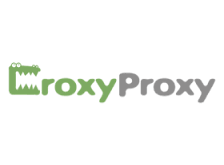As healthcare expenses continue to rise, it’s becoming increasingly important for healthcare finance professionals to exercise effective control over their healthcare spending. If left unchecked, healthcare needs can quickly become out of control, potentially leading to financial insolvency. To effectively manage healthcare expenses, healthcare finance professionals must take proactive steps to control their needs, including identifying their financial objectives, establishing a budget, and regularly reviewing and adjusting spending habits.
The first step to controlling healthcare needs is to identify a clear set of financial objectives. This involves defining specific goals that are realistic and attainable within the framework of a healthcare budget. Common financial objectives include reducing overall healthcare spending, increasing cost efficiency, or maximizing the value of healthcare investments. Once specific objectives have been identified, healthcare finance professionals can begin to develop strategies that are tailored to meet these goals.
The next step in controlling healthcare needs is to establish a comprehensive budget that considers all healthcare expenses. This includes not only direct medical expenses, such as doctor’s visits and prescription medication, but also insurance premiums, co-payments, and other related costs. To develop an accurate and effective healthcare budget, healthcare finance professionals should work closely with other healthcare professionals to gather data on both the costs and benefits of various healthcare interventions.
Once a budget has been established, it’s important to regularly monitor and adjust spending habits to ensure that healthcare needs are being met within the constraints of the budget. This may involve limiting unneeded healthcare services or choosing lower-cost options for necessary healthcare interventions. Additionally, healthcare finance professionals should be prepared to renegotiate contracts with healthcare providers or insurance companies to achieve cost savings and improve quality of care.
Ultimately, effective healthcare finance management requires constant vigilance and adaptability. Healthcare finance professionals must be willing to take a proactive approach to controlling healthcare costs and regularly evaluate their financial strategies to ensure that they remain effective in the face of changing healthcare needs and market conditions.
In order to effectively manage healthcare expenses, healthcare finance professionals must also stay up-to-date on the latest trends and developments in healthcare finance management. This includes keeping abreast of changes in healthcare regulations and policies, as well as new technologies and innovations that may impact healthcare delivery and financing. Healthcare finance professionals should also seek out continuing education opportunities and professional development resources to improve their skills and stay current on emerging best practices in healthcare finance management.
In addition to these strategic considerations, healthcare finance professionals must also be aware of the ethical and social implications of their financial decisions. As healthcare delivery models continue to evolve, there is a growing recognition of the need to consider broader ethical and social perspectives in healthcare finance decision-making. This includes taking into account the impact of healthcare decisions on vulnerable populations, such as the elderly, disabled, and low-income individuals.
To effectively manage healthcare needs while also balancing ethical and social considerations, healthcare finance professionals must be prepared to engage in open and transparent communication with stakeholders across the healthcare system. This includes working collaboratively with healthcare providers, insurance companies, patients, and families to identify areas of potential improvement in healthcare finance management and to develop effective solutions that meet the needs of all stakeholders.
Ultimately, effective healthcare finance management requires a multifaceted and multidisciplinary approach that involves careful attention to financial, ethical, and social considerations. By taking a proactive approach to controlling healthcare expenses, regularly monitoring and adjusting spending habits, and staying up-to-date on emerging trends and best practices, healthcare finance professionals can help to ensure that healthcare remains accessible and affordable for all.
 Daily Blogger News Stay updated with the latest trends and insights. Your reliable source for daily updates and information.
Daily Blogger News Stay updated with the latest trends and insights. Your reliable source for daily updates and information.






